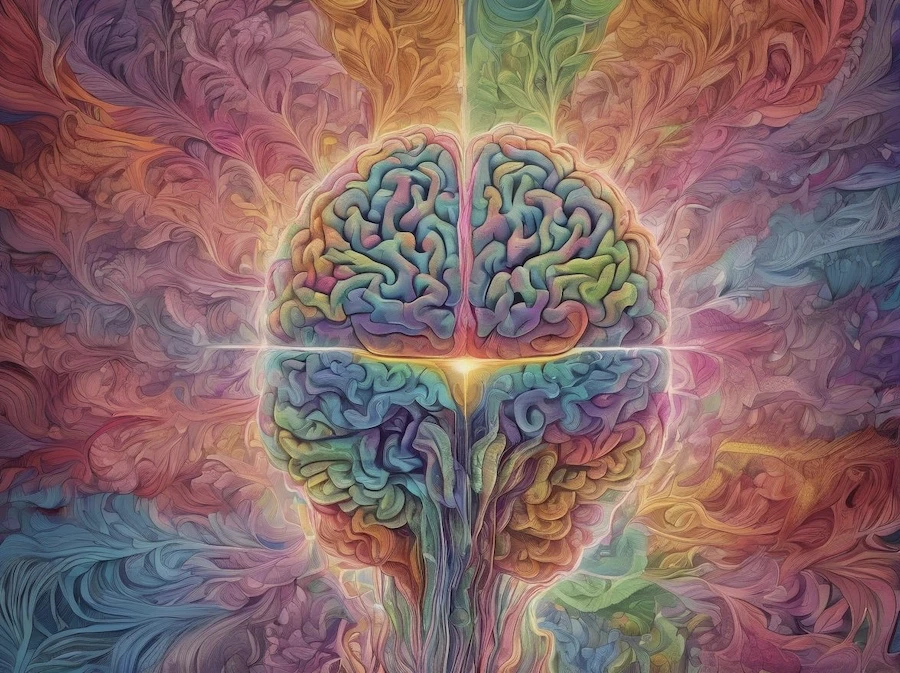October 2, 2023- 3RD OF 3
The Role of Childhood Experiences in Shaping Adult Personality
Personality development is a lifelong process that shapes who we are as individuals. It encompasses a myriad of factors, including genetics, environment, life experiences, and personal choices. Understanding and actively engaging in personality development can lead to self-discovery, personal growth, and the enhancement of one's overall quality of life. In this article, we will explore the fascinating journey of personality development, its influential factors, stages, theories, strategies, and the role of education and personal growth.
Factors Influencing Personality Development
Genetics and Hereditary Factors:
Our genetic makeup plays a fundamental role in shaping our personalities. Traits and tendencies can be inherited from our parents, influencing our disposition, temperament, and even susceptibility to certain behaviors.
Environmental Factors:
a. Family Upbringing: Early family dynamics, parenting styles, and sibling relationships contribute significantly to personality development.
b. Cultural and Societal Influences: Cultural norms, values, and societal expectations impact how we perceive ourselves and relate to others.
c. Education and Peer Interactions: School, teachers, and peer groups introduce us to various social dynamics and shape our social skills.
Life Experiences and Traumas:
Significant life events, both positive and negative, can profoundly affect personality development. Traumatic experiences may lead to changes in behavior, coping mechanisms, or psychological outlook.
Stages of Personality Development
Childhood Development:
a. Formation of Core Personality Traits: Early childhood experiences contribute to the development of essential personality traits, such as trust, autonomy, and initiative.
b. Attachment Styles: The quality of early attachments to caregivers can influence one's ability to form healthy relationships later in life.
Adolescence:
a. Identity Formation: Adolescents undergo a quest for identity, exploring their values, beliefs, and personal goals.
b. Peer Influences: Friends and peer groups have a significant impact on shaping adolescent identities and behaviors.
Adulthood:
a. Career and Personal Relationships: Career choices, marriage, and parenting significantly affect personality development in adulthood.
b. Continual Growth and Adaptation: Adults continue to adapt and evolve as they face life's challenges and transitions.
Theories of Personality Development
Psychoanalytic Theory (Sigmund Freud):
Freud's theory emphasizes the role of unconscious thoughts and desires in shaping personality. It introduces concepts like the id, ego, and superego.
Social Learning Theory (Albert Bandura):
Bandura's theory highlights the influence of social interactions, observational learning, and modeling in personality development.
Erikson's Psychosocial Stages:
Erikson's theory proposes eight stages of psychosocial development, each associated with a unique crisis or challenge that individuals must navigate.
Trait Theory (Big Five Personality Traits):
The Big Five model assesses five core personality traits
- openness
- conscientiousness
- extraversion
- agreeableness
- neuroticism
Strategies for Positive Personality Development
Self-Awareness and Self-Reflection:
Self-awareness is the first step toward personal growth. Regular self-reflection helps individuals understand their strengths, weaknesses, and values.
Setting Personal Goals:
Goal-setting provides direction and motivation for personal development. Setting achievable goals can lead to a sense of accomplishment and growth.
Building Self-Esteem and Confidence:
Developing a healthy sense of self-esteem and self-confidence is crucial for a positive self-image and resilience in the face of challenges.
Developing Emotional Intelligence:
Emotional intelligence involves recognizing, understanding, and managing one's own emotions and the emotions of others, fostering better relationships.
Seeking Professional Help if Needed:
In some cases, seeking therapy or counseling can be instrumental in addressing underlying issues and facilitating personality development.
Role of Education and Personal Growth
Lifelong Learning and Personal Development:
Engaging in lifelong learning and pursuing personal development opportunities can lead to skill enhancement and intellectual growth.
Enhancing Skills and Talents:
Identifying and nurturing individual skills and talents can boost confidence and contribute to personal fulfillment.
Expanding One's Horizons:
Travel, exposure to diverse cultures, and embracing new experiences can broaden one's perspective and contribute to personal growth.
Challenges and Obstacles in Personality Development
Overcoming Negative Influences:
Negative influences from the past or external factors can hinder personality development. Recognizing and addressing these influences is essential for growth.
Dealing with Setbacks and Failures:
Resilience is a key factor in personality development. Learning to cope with setbacks and failures can lead to increased mental and emotional strength.
Coping with Mental Health Issues:
Mental health challenges, such as anxiety or depression, can impact personality development. Seeking professional help and support is crucial.
Personality development is a dynamic and lifelong journey. By understanding the influential factors, stages, theories, and strategies involved, individuals can actively engage in shaping their personalities for the better. The role of education, personal growth, and the ability to overcome challenges are essential elements in this transformative process. Embracing personality development can lead to a more fulfilling and authentic life, allowing individuals to become the best versions of themselves.

















































.webp)
.webp)














































